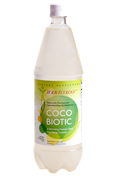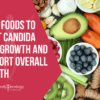When Do Fermented Foods Go Bad? Our Most Frequently Asked Questions on This Topic Answered
As the recognized leader in making probiotics from healthy liquids and foods an essential part of your diet, Body Ecology is often asked practical questions about how long probiotics in these food forms last… including our own top-selling probiotic liquids, Dong Quai, InnergyBiotic, and Coco-Biotic. Below are some key answers …
Q. I drink Body Ecology fermented beverages like InnergyBiotic. Are they still good even if they are flat?
A. There are a number of changes that can affect the effervescence of our products. Yeast levels is one of the main causes of effervescence.
(In our products these levels are less than 1% of the total microflora level.)
When there are high Lactobacillus counts, and also high levels of yeast effervescence will be very high.
When there is a high Lactobaccilus count and lower yeast levels the product will appear flat. The bacteria will still be active but there will be little effervescence.
To answer your question, fermented beverages may lose their natural effervescence, but the beneficial microflora still remain.
Our Probiotic liquids are very potent. To repopulate your intestines you only need to drink 2 oz. of fermented liquid at a time…once or twice a day. Each bottle of CocoBiotic, Dong Quai and InnergyBiotic can, therefore, last quite a while. Our super concentrated probiotic drinks may no longer be fizzy, but they still retain the beneficial bacteria that populate your gut with microflora.

CocoBiotic can populate your gut with good bacteria whether it’s bubbly or flat. Enjoy it at home or wrap it in a plastic bag to take along on trips.
Q. I’d like to make some cultured vegetables at home but I’m afraid that after I make them I won’t be able to tell if they are good or bad. Also do they go bad?
A. Cultured vegetables usually turn out perfectly fermented if you follow the directions on the culture starter. Certainly a batch can turn out badly but you would be able to tell if they were not safe to eat. Bad ones smell awful and they look ugly. The will be dark and grey in color. Good batches are bright and colorful.
Unfortunately, when you first open a jar of cultured veggies they do often have a stinky smell. Kind of like someone just passed wind. Fortunately, this smell quickly disappears. Since cultured veggies are best eaten at room temperature go ahead and scoop some out of the jar and place them in a serving bowl. Leave them out on the counter until you are ready to serve them during the meal. Oftentimes we add olive oil (or another favorite oil) and some sea salt if we want to make them less sour. Sticky smell or not, they are one of the most valuable and nutritious foods you can eat. They are a great source of Vitamin C (when made with cabbage) and are powerful detoxifiers.
But there is more good news: fermented veggies last a long time. Even a year later they are still safe to eat. They will not contain as much beneficial microflora as a freshly made batch but they will provide you with superior nutrition. This makes them excellent survival foods. In fact, Captain Cook took barrels of cultured cabbage on his long voyage to discover Tahiti…a two year journey. As a result of his insight and wisdom, his men remained very healthy throughout the long journey.
Fermented vegetables and kimchi are easy to make at home, and with our Body Ecology cultured starter kits you can be sure that you are fermenting your foods with beneficial strains of bacteria.
Cultured vegetables do need proper conditions for fermenting. Make sure that they are kept between 70 and 75 degrees Fahrenheit while they ferment.
As for length of time to ferment, 7 – 14 days creates an ideal flavor. Other people prefer more a more sour taste, and some less. You can occasionally open the jar and taste them periodically while they are fermented. Put them in the refrigerator once they have developed the flavor you like. Keep in mind that your cultured vegetables may ferment more quickly in hot summer months than in the winter time so check them accordingly. Above all, the length of time to ferment your vegetables is really just a personal choice.
At Body Ecology we do believe that the microflora in your cultured vegetables are sensitive to your moods. So be sure to prepare them when you are in a good mood and infuse them with your love. We believe that a batch made when you are angry is more likely to be a disappointing batch.
Q. Young Coconut Kefir is one of my favorite drinks. Does it go bad?
A. Young Coconut Kefir is a delicious way to populate your gut with healthy microflora (good bacteria and yeast). Just like other probiotic liquids, when Young Coconut Kefir goes flat, you will have lost the live yeast but will still have the benefits of the other healthy live microflora for several more days. As the microflora consume their food supply (sugar) and have nothing left to eat, they die off. You might it fascinating to know, however, that even dead microflora can stimulate the immune system in a positive way.
If you are making young coconut kefir from scratch with a new package of starter , let it ferment for 36-48 hours, then place in your refrigerator to slow down the fermentation. If you are transferring some previously-made young coconut kefir into new fresh coconut water (6 – 10 TBS. per quart) then it only takes 24 hours to ferment. The longer it remains in the fridge, the sourer it will become because some fermentation is still occurring even in the colder environment of the refrigerator.
Depending on the taste you prefer, you might want to make smaller batches that you drink up quickly…always having a freshly made batch ready to go into the fridge. Remember, you can save a portion of your last batch to start your next one. We recommend you make a new batch every 3 – 4 days.
Here’s a special tip: You can use InnergyBiotic or any of our fermented liquids or our other starters to begin new batches using the fresh water from young coconuts.
Keep watching the FREE Body Ecology health newsletter (sign up for the free newsletter now and get an audio gift worth $14.95 FREE too!) for more insights on probiotics, cultured foods, nutritious eating and your health!








